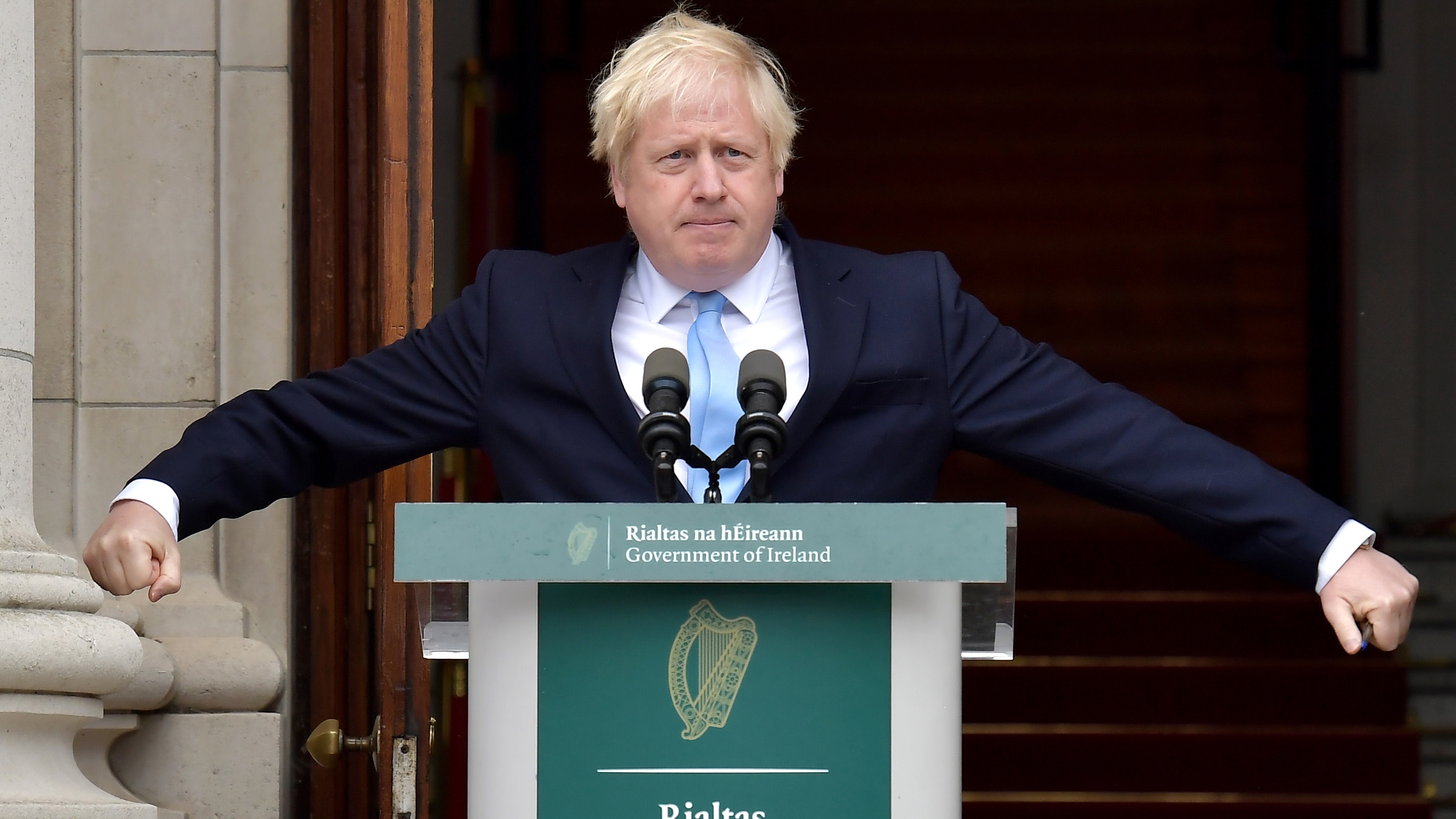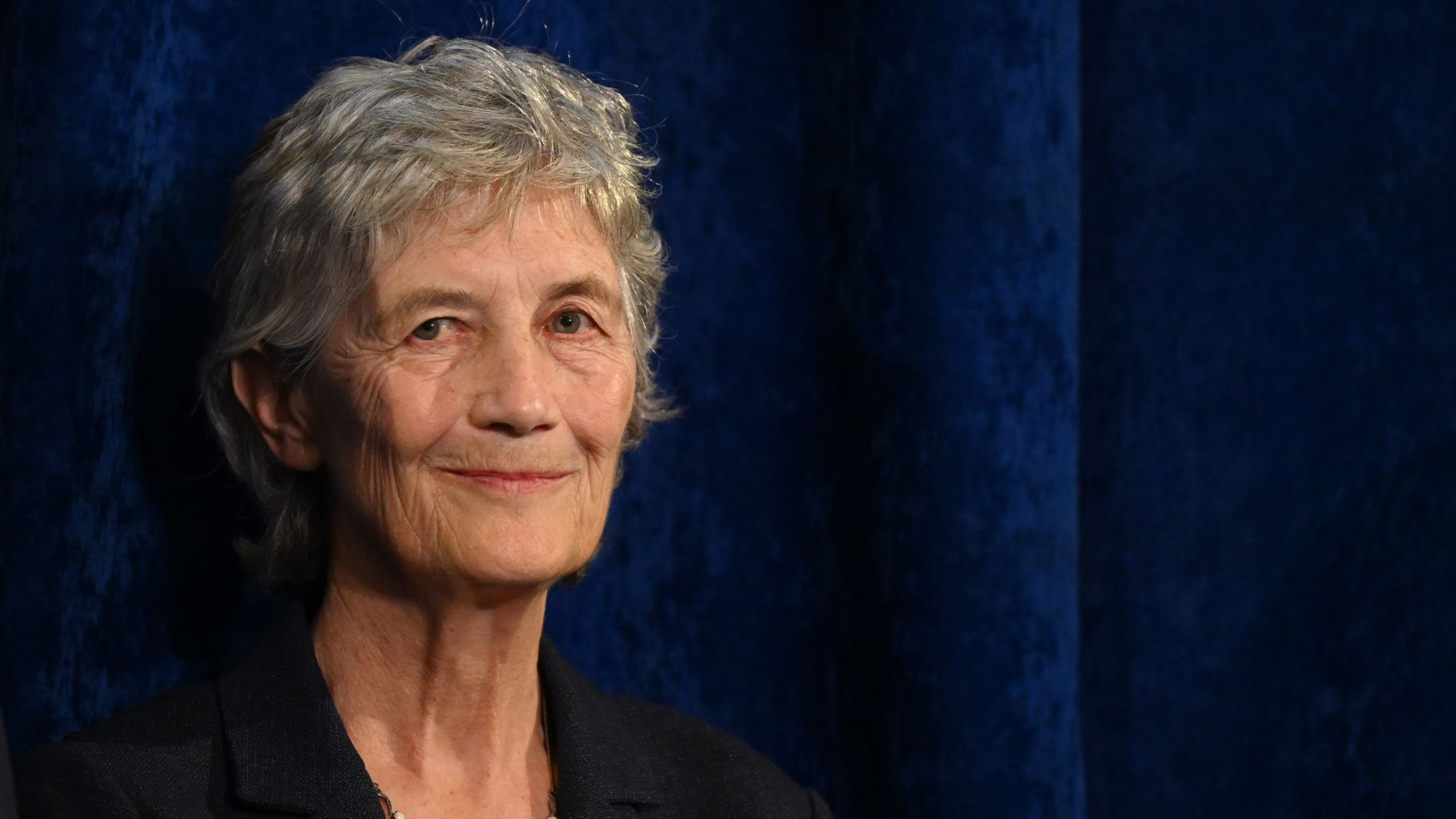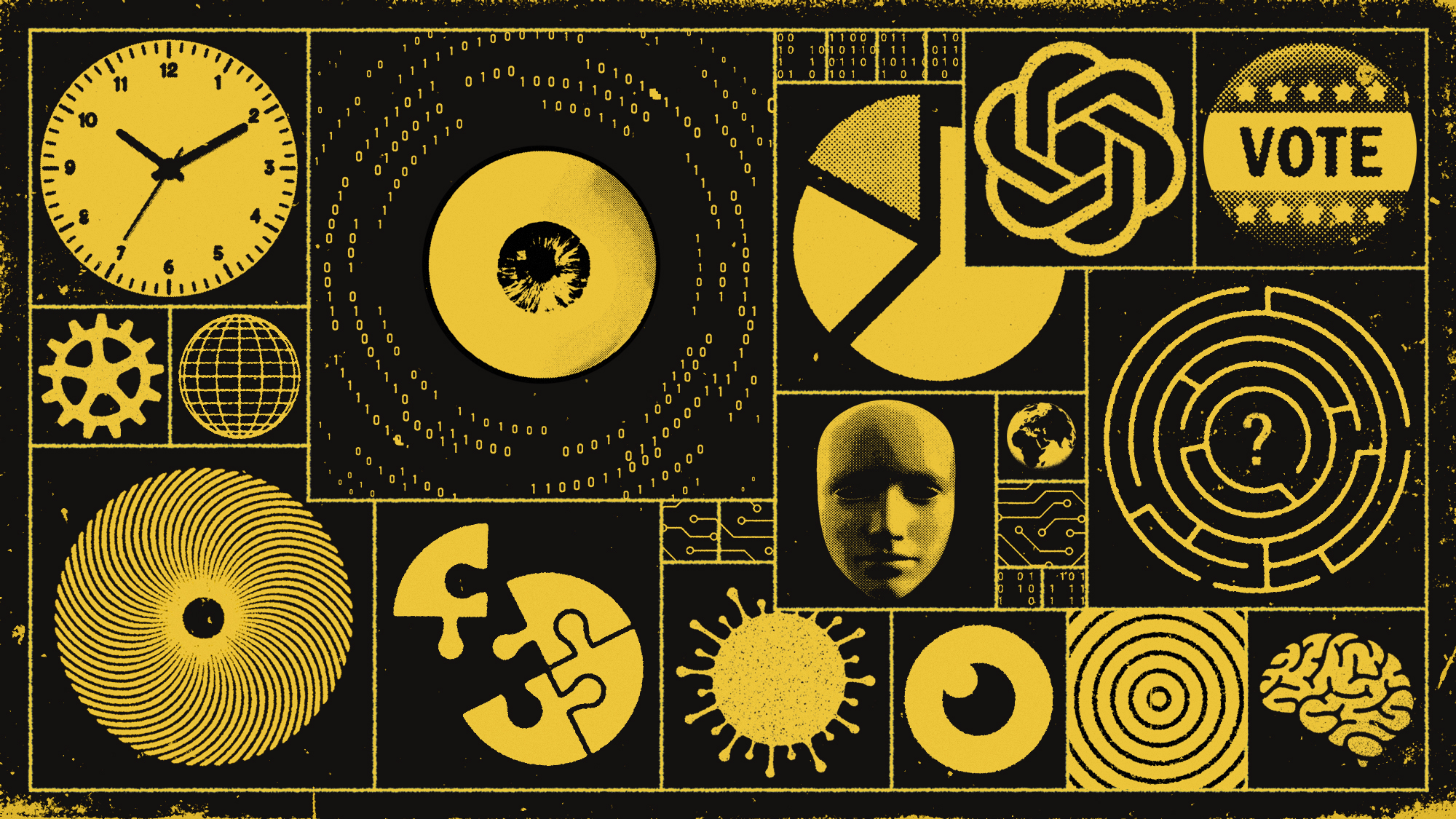What an Irish Sea border would mean for the UK
Experts say businesses will face extra costs and admin under Boris Johnson’s alternative to Irish backstop

A free daily email with the biggest news stories of the day – and the best features from TheWeek.com
You are now subscribed
Your newsletter sign-up was successful
Tory grandee Michael Heseltine has accused Boris Johnson of lying to the Democratic Unionist Party over the Irish Sea border.
Speaking to Sky News, the former deputy-prime minister said that alienating the Northern Irish party was one “of the many things Boris Johnson has got wrong”.
“He went to their conference and, in black and white, he said there would be no border down the Irish Sea. That was a lie, by any standards. He has now completely reneged on that,” said Heseltine.
The Week
Escape your echo chamber. Get the facts behind the news, plus analysis from multiple perspectives.

Sign up for The Week's Free Newsletters
From our morning news briefing to a weekly Good News Newsletter, get the best of The Week delivered directly to your inbox.
From our morning news briefing to a weekly Good News Newsletter, get the best of The Week delivered directly to your inbox.
So what does Johnson’s deal propose?
The prime minister’s Brexit deal includes an alternative backstop that would create a border between Northern Ireland and the rest of the UK if a main trade deal cannot be reached with the EU before the end of the transition period.
The border - effectively a line in the Irish Sea - would mean that goods entering the island of Ireland are checked for standards and tariffs before their arrival, says The Guardian. This would mean that trade across the actual border between the Republic of Ireland and Northern Ireland could continue without disruption.
Hauliers taking goods across the sea would have their cargo inspected by officials to ensure they are complying with EU rules, and would have to fill out customs declarations, the i news site explains.
A free daily email with the biggest news stories of the day – and the best features from TheWeek.com
The Government says these checks could take place at factories and warehouses instead of in ports, in an effort to limit lengthy delays at key infrastructure points.
Experts say most UK exports to Northern Ireland won’t face tariffs, according to fact-checking website Full Fact.–––––––––––––––––––––––––––––––For more political analysis - and a concise, refreshing and balanced take on the week’s news agenda - try The Week magazine. Get your first six issues free––��––––––––––––––––––––––––––––
What is the DUP’s objection?
The party is against any measures that compromise regulatory alignment between Northern Ireland and the rest of the UK.
DUP leaders are concerned that Johnson’s alternative to the backstop arrangements will be adopted and then become the new norm.
“These arrangements will become the settled position in these areas for Northern Ireland. This drives a coach and horses through the professed sanctity of the Belfast [Good Friday] agreement,” said the DUP in a statement.
“For all of these reasons it is our view that these arrangements would not be in Northern Ireland’s long-term interests.”
What would it mean for business?
The head of HM Revenue and Customs, Jim Harra, has warned that British and Irish businesses which trade solely within the UK would face considerable extra costs and admin under Johnson’s deal.
On Tuesday, Harra told the Treasury Select Committee that the new arrangements would “feel like a commercial border” in the Irish Sea thanks to customs declarations and tariffs, says The Times.
He said: “We don’t envisage a significant level of physical checks but that is something that could be required to give effect to EU regulatory standards.”
His comments came hours after the Government released an impact assessment of its plans that admitted the PM’s Brexit deal “will result in additional administrative costs to businesses”.
The director general at the British Chambers of Commerce, Adam Marshall, said: “Northern Irish businesses and British businesses that trade with Northern Ireland will understandably have questions about what administrative requirements and costs they will incur if this comes into effect.”
-
 The Olympic timekeepers keeping the Games on track
The Olympic timekeepers keeping the Games on trackUnder the Radar Swiss watchmaking giant Omega has been at the finish line of every Olympic Games for nearly 100 years
-
 Will increasing tensions with Iran boil over into war?
Will increasing tensions with Iran boil over into war?Today’s Big Question President Donald Trump has recently been threatening the country
-
 Corruption: The spy sheikh and the president
Corruption: The spy sheikh and the presidentFeature Trump is at the center of another scandal
-
 How corrupt is the UK?
How corrupt is the UK?The Explainer Decline in standards ‘risks becoming a defining feature of our political culture’ as Britain falls to lowest ever score on global index
-
 The high street: Britain’s next political battleground?
The high street: Britain’s next political battleground?In the Spotlight Mass closure of shops and influx of organised crime are fuelling voter anger, and offer an opening for Reform UK
-
 Biggest political break-ups and make-ups of 2025
Biggest political break-ups and make-ups of 2025The Explainer From Trump and Musk to the UK and the EU, Christmas wouldn’t be Christmas without a round-up of the year’s relationship drama
-
 ‘The menu’s other highlights smack of the surreal’
‘The menu’s other highlights smack of the surreal’Instant Opinion Opinion, comment and editorials of the day
-
 Is a Reform-Tory pact becoming more likely?
Is a Reform-Tory pact becoming more likely?Today’s Big Question Nigel Farage’s party is ahead in the polls but still falls well short of a Commons majority, while Conservatives are still losing MPs to Reform
-
 Meet Ireland’s new socialist president
Meet Ireland’s new socialist presidentIn the Spotlight Landslide victory of former barrister and ‘outsider’ Catherine Connolly could ‘mark a turning point’ in anti-establishment politics
-
 Believe it when AI see it: is this a deepfake turning point in politics?
Believe it when AI see it: is this a deepfake turning point in politics?Today’s Big Question AI ‘slopaganda’ is becoming a ‘feature’ of modern elections
-
 Taking the low road: why the SNP is still standing strong
Taking the low road: why the SNP is still standing strongTalking Point Party is on track for a fifth consecutive victory in May’s Holyrood election, despite controversies and plummeting support